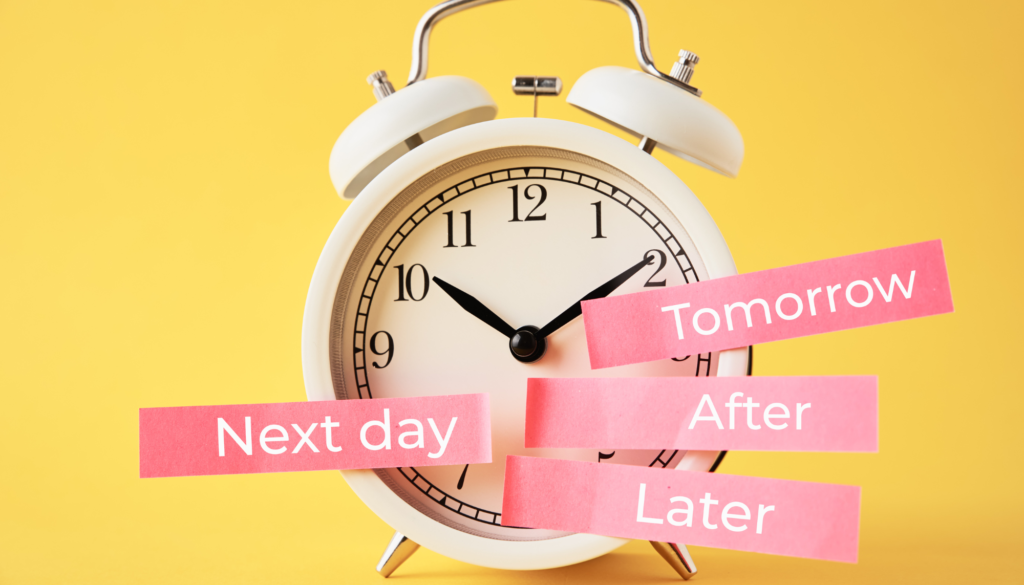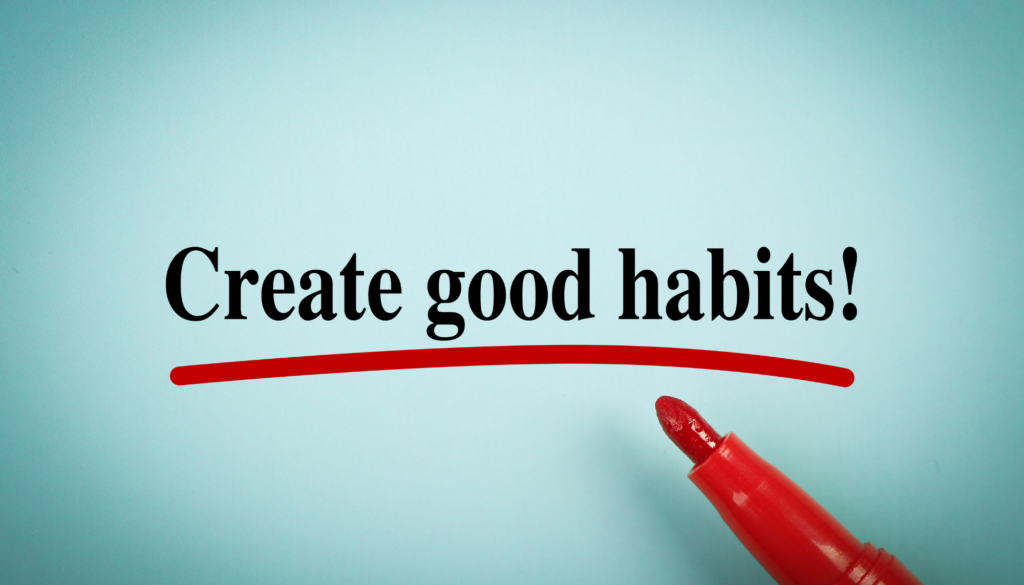Introduction
Aah, it’s morning again. Lots of work pending. How can I do so much today? Let me plan it for tomorrow. It happens again and again. If you have not scheduled your day in advance, you will always miss the target. Planning, scheduling and being ready to work on the plan is the key to success. Self-discipline means staying focused and doing what is right. Procrastination, on the other hand, is delaying tasks despite knowing their importance. In today’s fast-moving world, every one of us is struck in the trap of multi-tasking. Especially in India where students prepare for competitive exams and professionals juggle deadlines, this struggle is real. We all want success, but distractions often win. Learning self-discipline can bring peace and progress.

Self-Discipline: Success is yours
Definition in Simple Terms
Self-discipline means doing what needs to be done, even when you do not feel like doing it. When you discipline yourself you choose long-term goals over short-term pleasures. If we say in simple words, it is the strength to say “no” to distractions and “yes” to progress.
Take an example of Ritu, a student in Delhi preparing for NEET Exam, wakes up every day at 5 AM to study, even when her friends are watching reels late at night. That’s self-discipline in action.
The Science Behind Self-Discipline
Self-discipline is just like any other habit. A common behaviour becomes a habit when it is repeated over the time. Self-discipline is not just a personality trait rather it is a brain function. The prefrontal cortex, the part of the brain behind your forehead, helps with decision-making and self-control. With practice and routine, this area becomes stronger, just like a muscle.
There are various factors, which may play vital role in developing Self-discipline. Meditation, regular sleep, and mindful habits are proven ways to improve this control. As per a Harvard study, mindfulness boosts focus and emotional balance.
Benefits of developing Self-Discipline
Discipline brings freedom from mental jargon. It reduces stress, builds confidence, and improves health. It helps students prepare better, professionals meet deadlines, and families live with balance. All this is possible because everything is properly scheduled and targets are achieved.
Whether it is about saving money, eating healthy, or learning a new skill, discipline is the bridge between desire and achievement.
Are you ready to develop Self-discipline? Start small. Use tools like Habitica or Todoist to stay consistent. Discipline may feel hard at first—but it always rewards in the end.

Procrastination: Why do you choose
Procrastination means putting off tasks you know are important. It is hard to get out of your comfort zone. You delay action, not because you can’t do it, but because doing it feels hard in the moment. When you delay a task, you feel relaxed and comfortable for the time being. It gives short-term relief but brings guilt, stress, and poor results later. Many students and working professionals face this daily, especially during exams, deadlines, or big decisions.
The Psychology behind Procrastination
Laziness is just not the only reason for procrastination. It is often rooted in fear of failure, perfectionism, or simply feeling overwhelmed. When your brain senses discomfort, it picks a safer, more pleasant option. Most of the times, it is not useful. The prefrontal cortex, responsible for decision-making, gets overridden by the emotional brain that seeks comfort.
According to this Harvard Health article, procrastination is a way to cope with challenging emotions.
Why We Fall Into the Trap
Being honest, we all prefer pleasure over effort. It avoids pain and seeks joy. Watching Netflix or scrolling Instagram feels easier than writing a report or studying for university exam.
Take the case of Sandeep, a B.Tech student in Lucknow. He knows he should prepare for campus placements, but the pressure makes him anxious. So, he keeps delaying it.
So, how to beat procrastination? Just start. Use apps like Forest or Focus To-Do to build momentum—one task at a time.
Self-Discipline vs. Procrastination
Every morning we fight within. The day starts with a simple decision, snooze the alarm or rise and shine. Though it seems a small decision but it holds more power than we think. These choices shape our routine. They decide whether discipline or delay leads our day. In cities like Bengaluru or Pune, where life moves fast, these daily battles are part of every student’s and professional’s journey.
How Procrastination Kills Productivity
Procrastination makes you feel good for some time, but it slowly eats away your focus. What should take one hour stretches into five. Your brain stays busy, not with work but with worry. Even after finishing the task, the stress lingers. The emotional weight of delay can affect your confidence and peace of mind.
According to Psychology Today, procrastination reduces efficiency and increases anxiety over time. It is dangerous if the habit of procrastination consists for longer time. It can hamper your career growth and mental health.
Why Self-Discipline Wins in the Long Run
Self-discipline is a better choice for multifarious personality development. Discipline is not at all about being perfect. It is about being consistent. It helps you build routines that support your goals. When you are disciplined, you do not need motivation every day. It becomes your habit over the time.
Think of Myra, a teacher in Ohio, who spends 20 minutes every night planning her next day. She sleeps better, wakes up clearer, and never scrambles in the morning. That is the quiet power of discipline.
Want to win your daily battles? Start with small steps. Use tools like Notion or Google Tasks to stay organized. Small wins lead to lasting change.

Building Self-Discipline Step by Step
Developing Self-discipline is just not an overnight job. It is a journey, not a race. In the modern world, distractions are everywhere. WhatsApp notifications to binge-worthy web series, lusty videos, news, sports and what not. It becomes even more important to take control of your time and energy. Can you control the situation? The answer is “Yes”. You can begin small and grow strong.
Start Small and Stay Consistent
Discipline does not need a big starts. You can start with just 5 minutes. Take the story of Ritu, a college student from Pune. She started waking up 10 minutes earlier every day to revise her notes. Within a month, she was managing 45-minute focused study sessions. These small daily wins turned into powerful habits. Consistency, not intensity, is the real key.
Set Clear and Achievable Goals
If your goal is clear in your mind, your brain is capable to lay down the path. Write your goals down on paper. You should be honest and realistic about what do you really want, and why does it matter? For example, “I want to walk for 20 minutes daily to feel energetic and reduce stress.” Goals with meaning, hold you accountable for your plan. You may need a push to achieve you goals. Put sticky notes on your mirror, or use an app like Habitify or Google Keep.
Use Time Blocks and Schedules
When you have set your goal and planned properly, be sure half the battle won. Use time blocks. Assign study, work, rest, and even scroll time. Apps like Trello or Google Calendar can help. Create a routine and stick to it like a commitment. Remember, even 80% discipline brings better results than chasing perfection.
Building self-discipline is like growing a plant. Water it daily with action. Give it sunlight through motivation. And soon, you will watch your life bloom.

Practical Tips to Overcome Procrastination
When you realise that you need to make some changes in your life, you will with enthusiasm and zeal. Most of the time, you make short-term and unrealistic plans. Building self-discipline doesn’t mean pushing yourself to the edge. Sometimes, it is about doing the little things without delay and making the journey less overwhelming.
Use the “2-Minute Rule”
If something takes less than two minutes, do it immediately. Reply to that email. Put away your shoes. Wash that one plate. This simple habit, shared by productivity expert David Allen, stops procrastination before it begins. It is surprising how many things in our to-do list are just quick actions waiting to be done.
Break Tasks Into Bite-Sized Pieces
Breaking down a long work in small segments. It makes the task easy. For example, do not try to write the whole report. Just open your laptop and create the first bullet point. This technique works for everything—from cleaning your room to working on a project. A mountain becomes climbable when you focus only on the first step. As author James Clear says, “Standardize before you optimize.”
Reward Yourself After Completion
Finished a tough call? Go stretch or grab your favourite tea. Completed a writing session? Watch a short video guilt-free. When your brain knows there’s a reward, it starts showing up with less resistance. These small celebrations turn effort into joy.
Discipline doesn’t have to feel heavy. Make it light. Make it doable. And most of all, make it kind.

How Habits Shape Discipline: Small Acts, Big Impact
The Power of Repetition
Your determination to bring changes in life needs a persistent effort. Start doning something every day towards your goal. It may not be perfect, but it builds a rhythm. A 10-minute workout. Reading a single page. Writing a short journal entry. When your brain gets used to the pattern, the resistance fades. Momentum becomes your silent cheerleader. As author James Clear says in Atomic Habits, “Every action you take is a vote for the person you want to become.”
Replacing Bad Habits with Good Ones
You cannot change your habits overnight, you need to replace them with better one. Instead of scrolling Instagram endlessly, try journaling your thoughts or reading two pages from a meaningful book. Even a 5-minute meditation can quiet your mind better than any social feed. Tools like Habitica or Fabulous turn habit-building into a rewarding experience.
Daily Rituals That Keep You Grounded
Small efforts can bring big changes in life. Start your day with a short walk. End it with a reflection. These little rituals act like anchors. They calm the chaos and help you stay focused. Across the world, people who follow such daily rhythms are not just more productive but they are more peaceful.
Discipline is less about willpower and more about choosing your habits wisely, every single day.
The Role of Mindset
Fixed vs. Growth Mindset: It All Starts with How You Think
What we believe about ourselves, shapes what we do. Think of two persons with different mindset. First, with a fixed mindset might say, “I’m just a procrastinator. I’ve always been like this.” The second, with a growth mindset gently responds, “Maybe I struggle now, but I can improve with time and effort.”
This small shift makes a big difference.
How Beliefs Shape Behaviour
Assessment of your strength is very important. If you believe self-discipline is painful or impossible, you will naturally avoid it. You will delay tasks. Doubt yourself. Feel stuck. But what if you believed that discipline was a gift—a way to care for your future self? Your actions would slowly begin to align with that belief. This is the power of mindset.
Self-Talk and Motivation
We talk with ourselves more than others. Pay attention to how you speak to yourself. Are you kind or harsh? Imagine talking to a close friend who is having a rough day. You would be gentle, supportive, and patient. That is exactly how you should speak to yourself too. Your inner voice can be your greatest cheerleader.
Building a growth mindset takes time, but it’s worth it. One small, positive thought can spark lasting change.
Tools and Apps for Self-Discipline
There are many helpful tools and apps that make building self-discipline easier.
Top Productivity Apps to Stay on Track
- Notion
- Todoist
- Trello
- Forest App (grows a tree as you stay focused)
Time Management Tools That Work
- Pomodoro Timers
- Google Calendar
- Focusmate
Journaling and Tracking Progress
- Daily planners
- Habit-tracking apps like Habitica or Streaks
Conclusion
Self-discipline and procrastination are two most important aspects, who define your life. When we talk about Self-discipline, you are just talking about reshaping your life for better not to make it perfect. You work to improve yourself every day, even in small ways. In-built tendency of procrastination, blocks our way of progress. When you replace delay with action, you build momentum. With the right mindset, gentle self-talk, and helpful tools, progress becomes possible. You should start small, stay kind to yourself, and keep moving forward. Your efforts today will shape a better tomorrow.
Helpful Resources:
- Carol Dweck on Growth Mindset
- Growth Mindset Guide – Mindset Health
- Positive Self-Talk Tips – Psychology Today
- Atomic Habits by James Clear
- Habitica – Gamify Your Habits
- Fabulous App – Daily Habit Coach
- Getting Things Done – David Allen
- James Clear’s Productivity Tips
- 2-Minute Rule on Todoist
- How to Build Self-Discipline – James Clear
- Time Management for Students – MindTools

